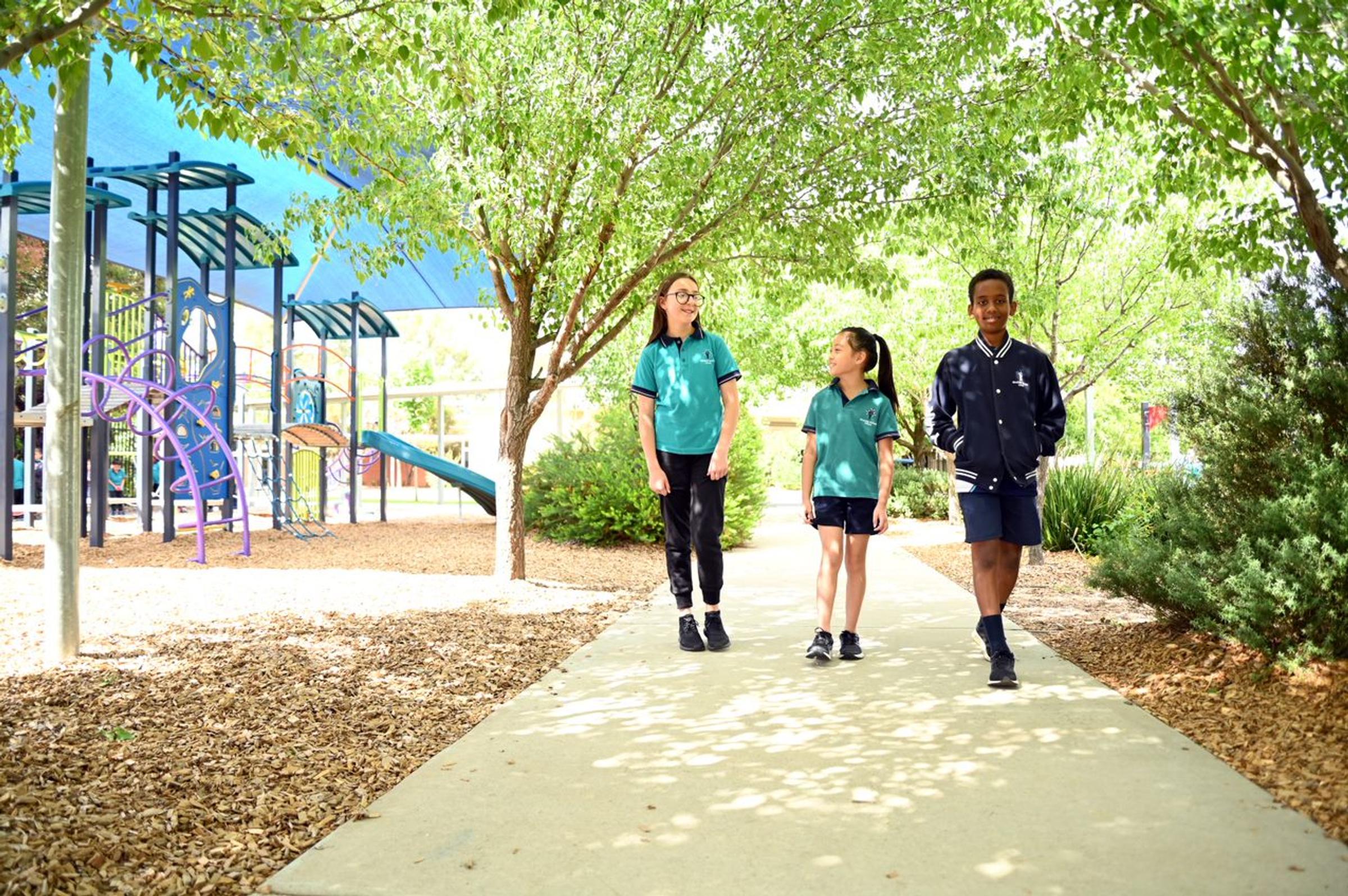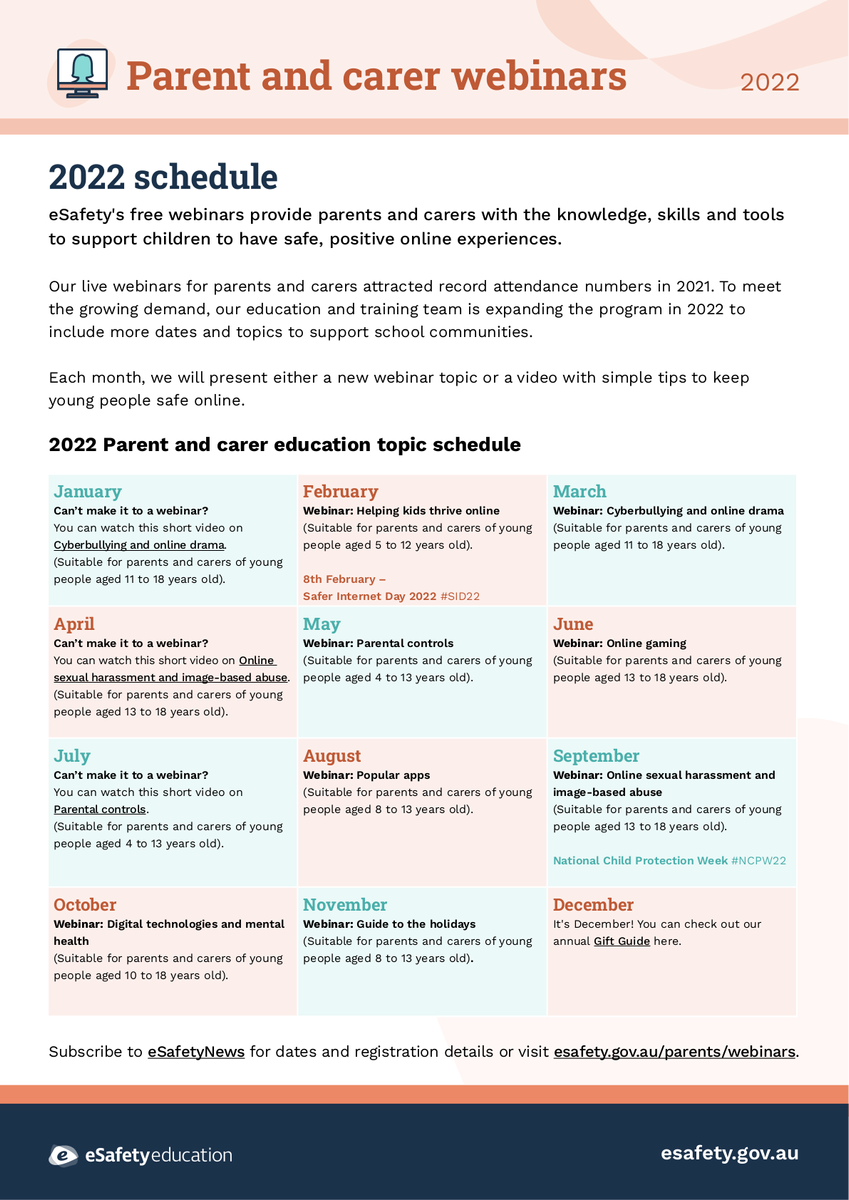From the Principal

Dear families,
Term 3 is starting with a flurry of activity with classes participating in swimming in Week 1. Water safety is an important part of the curriculum and we thank you for your support in supporting children to be organised. This can be a challenge for some as the week progresses and everyone gets a little weary. Asthma inhalers and up to date medical plans are vitally important as always but particularly with s many respiratory viruses around at the moment.
Safety is a strong theme for this term in particular as we revisit online safety. We often see an increase in children accessing social media during the winter months and then into the end of year holiday break as they keep connected with friends. We have safe user agreements for internet access at school and monitor student use closely with adult supervision and electronic monitoring software. Inappropriate social media use is an area that is out of the schools control however as it is accessed outside of school. We will continue to educate and inform students and will provide a range of supports for families over the coming weeks to support everyone's safety online. The government website www.esafety.gov.au provides useful information and support to families. For example here is the information they provide regarding Cyberbullying:
Cyberbullying
Cyberbullying is when someone uses the internet to be mean to a child or young person so they feel bad or upset.
eSafety helps prevent and deal with cyberbullying and its impacts. We do this by providing information, education and resources, and by investigating and helping to fix the most serious cases of cyberbullying.
A case study:
What is cyberbullying?
Cyberbullying is when someone uses the internet to be mean to a child or young person so they feel bad or upset. It can happen on a social media site, game, app, or any other online or electronic service or platform. It can include: posts, comments, texts, messages, chats, livestreams, memes, images, videos and emails.
These are some examples of ways the internet can be used to make someone feel bad or upset:
- Sending hurtful messages about them.
- Sharing embarrassing photos or videos of them.
- Spreading nasty online gossip about them.
- Leaving them out online.
- Creating fake accounts in their name.
- Tricking them into believing you are someone else.
We will also be accessing SAPOL workshops around a range of safety themes appropriate to different year levels. As parents and caregivers there are a range of resources that are also provided for you to support the safety of your children.
What you can do
If someone is being really mean online, first of all it’s a good idea to:
- tell a trusted adult and ask them to help you – you could show them this page about cyberbullying
- change the settings on your device or online account so you don’t see so many messages, posts or comments from the person who was mean – find out how in The eSafety Guide.
If you need cyberbullying material removed:
- report it to the social media site, gaming site or other app that was used to send, post or share the harmful content (this can be the fastest way to get it removed) – find reporting links for most sites, games and apps in The eSafety Guide
- check our tips about how to take care of yourself if you are cyberbullied.
If the site, game or app does not help you within 48 hours, and the cyberbullying is serious enough, eSafety can ask them to remove the harmful content.
Popular apps
Learn about TikTok, Instagram, Snapchat and YouTube and help your children stay safe online.
This webinar is designed for parents and carers of young people aged 8 to 13.
It will cover:
- case studies, research and targeted advice
- ways of supporting the young people in your life to have safe, enjoyable online experiences.
Term 3 dates (Australian Eastern Standard Time)
Monday 1 August 12:30 to 1:30 pm
Tuesday 16 August 7:30 to 8:30 pm
Thursday 25 August 12:30 to 1:30 pm
If there is some interest from families we will provide access to the webinar on Thursday 25th August in the Language and Culture Room. Please let us know at the Front Office if you are interested.
In addition to the potential risks of social media and increase in screen time can also harm childrens eyesight, as recently reported nationally with a concern that some damage is not being picked up and addressed. We are pleased to be able to remind you that we have organised One Sight to screen the eyesight of R-6 students of concern on Friday 29th July. This is a great opportunity for families and we hope that you will ensure that you complete the consent form from your child's class teacher. Numbers for screening are limited due to Covid restrictions and so if you particularly want your child to access the eye screening where they may not have been identified by staff as of concern then please contact Liz Mitkas and request that they be seen.
OneSight – When the world sees better, the world lives better.
Thank you!
Thank you for the tremendous support that you gave us for our first Family Expo event at the end of Term 2. We were able to connect seventy families with a range of information about the site, the services we provide from the Children's Centre through to Year 6 as well as information from a range of external service providers. We intend to make this a termly event and will let you know in the next newsletter when the Term 3 event will take place as we are currently in negotiation with the service providers regarding their availability.
Thank you also to the families who attended our end of term assembly. We were treated to a range of music performances by our talented students and had opportunity to acknowledge our basketball teams.
All schools are required to collect information about the numbers of students that they provide adjustments to under the Disability Discrimination Act (1992) and Disability Standards of Education This data is used as the basis for national funding.
The NCCD involves the collection of;
- the number of students receiving adjustments to enable them to participate in education on the same basis as other students
- the level of adjustment provided to students
- student’s type of disability if known
Under the model the definition of disability is broad and includes learning difficulties, health and mental health conditions.
If your child is identified for inclusion in the Collection, the required information will be included in this year’s data collection.
If you have any questions about the data collection, please contact Dee Economou on 8414 8600. Further information can be found at: http://www.education.gov.au/nationally-consistent-collection-data-school-students-disability


